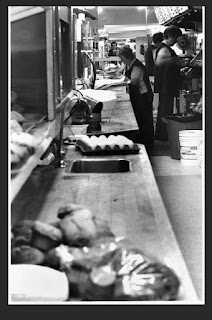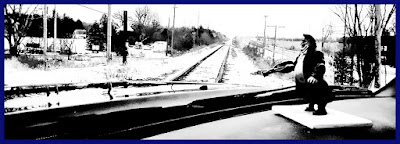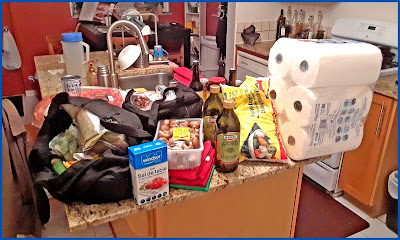Supply
Driven Economics – Free Market My Ass
1
Jan 2019
jp
Balkanization
It
is hard to give up drink.
I
live in a wonderland of economic seers whose prophecies are founded on
revisions of history, purposely selective interpretations of spilled intestines
and otherwise good literature (sadly including The Wealth of Nations), and
general denial of complicated facts, trends, and otherwise palpable realities.
Call
the economists, for the most part, armchair fairies, overpaid to wave magic
wands, dusting narcotic theories into our heads to turn our eyes from the
obvious.
I
suggest a viewing of <Leave No
Trace>, by Debra Granik.
Something
in the spirit of the film references us, our turning our eyes from the obvious
and submitting to the absurd.
Our
seers wear the emperor’s new clothes and we laud them for that.
This
drives me to drink.
I
tell my kids I gotta give it up. On the
wagon, I always wake with a greater sense of self and presence in the broader
world. Still cranky, though. Just ask the folks who prod me about veganism
or personal needs. The struggle I have
is my positive attitude. Not that I don’t
have one, but because in discussions, folks prefer denial. They call me the critical crank. And something inside me says that the
critical crank is positive. Because you
are taking the bull by the horns.
Dangerous, but positive. People
shoot you for that.
Hey,
you, take those invisible undies off and put on something decent, something I
can see, touch, smelt, mold. I am not
saying the result has to be mine to control.
But you can’t collectively build a mirage. Only some can profit from your thirst when
they control what sates you.
But
the seers don’t like this. And you get
into trouble. Nobody talks to you
because they all want to believe in the invisible truth. They fear losing the invisible hand that they’ve
been told sates them. Drives me to
drink.
This
whole self condemnation is not wholly accurate.
There are folk who do find me positive, constructive, get things done
kind of guy. Which is true enough. A busy body.
Jack of all trades. Problem
solver. Yet I am beset with doom, a
cloud, pointlessness. Too many if not
most drivers, motivators, justifications, arguments, validators and more come
to illogical vacuums. My head spins
where the perspective is justified by its argument, rather than concluding a
truth. Probably some philosophical term
for this. These leave me hanging too
often by my finger tips from slippery limbs, and I don’t like argument, so I
tend to let go, fall to the ground, pick
myself up with my bruises, and wander away, which threatens others. They all feel abandonment.
Where
do I turn to? Usually inside myself. It
is me who struggles with illogic. Don’t
get me wrong, by no means do I hold it against others to believe their point of
view. Their adherence saddens me though,
because, in the end, I sense that some kind of violence arises from insisting
on a set of values. Especially those
values constructed unwittingly on errant arguments. Think Ptolemy. On the other hand, we need a set of values,
like a set of rules, as a mechanism for daily function, especially to get along
with others. For social creatures we truly
are.
It
seems to me that for the most part people do not wish to harm others, that they
only do so under threat to their own universe.
Both are possible. The first
because we can let people self organize.
Separate states, provinces, cultures of being. The second is possible because not all self
identified groups have quite sufficient resources, intellectual or material, to
believe / feel / have a sense of knowing that they can hold their own, wherein
violence arises from the anger of inferiority, fear of failed meaning, the
conscious underdog.
So
I think of balkanization, a kind of fix for overt competition, reducing competition’s
more aggressive qualities, by creating space where people can focus on their
own sets of values without fear of having to defend themselves from loss of
identity, purpose. A kind of liberation
for those who emphasize their drive to create identity, a kind of evolutionary
process, with no beginning or end, wherein a group of people co-create their meaning,
sense of place in the world.
Agrarian
State
Altogether, it seems to me that balkanization
requires, broadly speaking, a kind of agrarian aspect. This could be, in our contemporary small
world context, extrapolated to an ecosystems aspect. People need to have a sense of not just food
but also material security. And with a
contemporary sense of vulnerability about world ecosystems, people need to know
that they can depend on natural systems around them, on which they depend
economically, like forests, lakes, rivers, seas, oceans, coasts, ice,
water. Not everyone, of course, will be
operating in a closed, independent system, where all their material needs are
satisfied from within their unique balkan group; excepting some remote
anthropological past or profoundly isolated recent human grouping, it is hard
to imagine that humans have ever lived in such an enclosed, self sufficient
state. To the best of my understanding,
we are traders and exchangers, a fundamental aspect of the human condition.
Why, again, would we expect an agrarian-come-ecological
systems based quality to any balkan state?
Simply, because of the need for a sense of security, without which we
will aggress ourselves towards others. If
I depend on cotton for clothing, the plant grown in a completely separate
nation, to maintain a sense of security I need to know that the ecological
system on which cotton production depends is treated and maintained in a
reasonably healthy state. That other
state owes me that sense of security, just as I owe them my efforts to provide
a reasonably secure supply of food, of lumber, or fish, or mineral, whatever
the case may be.
Ceteris Paribus
In all this, the balkan state economy founds itself on
a measure of ecosystems security. There
can be no theoretical ceteris paribus – all other things being equal. That is economic theory, soothsayer hogwash. Generally, there has to be stability. This is not a free market system, in which
supply and demand co-exist to find equilibrium, measured monetarily. This is an economic system in which stability
of supply, measured in both total cost of production and reproducibility of
supply, creates value. Demand increases
as reliability increases.
Of course, this is a regulated market. Proponents of a free market system argue that
regulated markets restrict the creation of wealth. This perspective requires an assumption that
markets have ever been unregulated, without which evidence there is no such
argument. For now, I will leave it to
only one example of how markets have never been unregulated, an argument viable
only with the economic sequitur of ceteris paribus.
All things are not equal in economy, nor are there any
externalities that do not impinge on any formula for balance. Ceteris paribus is not possible in an
enclosed system, earth. All things
matter, are affected, influence, and in the end direct trade and ultimately
determine value.
So for my one example that begs the question of free
market, it is that of militarism. I
cannot imagine or am unaware of any trading state in known history that did so
without an association of military power, control, protection, or
imposition. The only free market is an
enforced one.
Authority
A challenge to many of our present minds is the
question of authority. The idea of
authority is a required consideration if only because it exists, is applied,
felt, requested and generally present in everyday life. While some of us harbour an understanding that
authority must be checked at all costs, possibly an idealization of democracy,
the very idea of checking authority is recognition of its prevalence in our
lives. Related is the idea of freedom,
as though democracy and freedom go hand in hand.
But this association is an illusion, in part because
neither of the two exist in any polity in any pure form, and in part because if
neither of the two exist alone, there is no reason that they therefore co-exist
in association.
Authority plays an important role in most if not
almost all aspects of our lives: parenting, taxation, nine to five jobs. You name it.
Even in how we enforce our choice of self identity. All nation states are authorities. It is within the rubric of authority that we
find freedom.
The Challenge
So the challenge:
exploring the authority that will facilitate balkanized states to
function through economies of stable supply.






